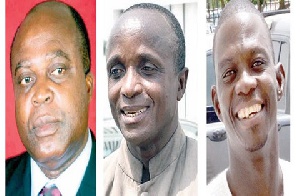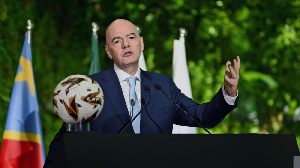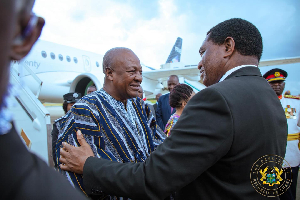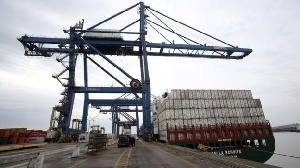A witness in the trial of the two persons involved in the Ghana Youth Employment and Entrepreneurial Development Agency (GYEEDA) scandal yesterday dropped a bombshell, saying that Clement Kofi Humado, former Sports Minister, cannot be absolved from the alleged scam.
The witness, Jacob Adongo said Mr Humado, who is also Member of Parliament (MP) for Anlo, was involved in almost all the processes leading to the payment of GH¢4.1 million to Goodwill International Group (GIG).
The former National Coordinator of GYEEDA and NDC MP for Chiana Paga, Abuga Pele, together with Philip Akpeena Assibit, are standing trial for the various roles they played in the GYEEDA scam.
The Attorney General’s Department told the High Court (Financial Division) in Accra that the accused persons caused huge financial loss to the state.
Mr Humado, who was the Minister of Youth and Sports and allegedly approved the payment, is currently serving as prosecuting witness.
The witness told the court that Goodwill International Group had a service contract with GYEEDA which was signed by Kofi Homado and witnessed by Abuga Pele.
Mr Adongo, testifying as a defence witness, told the court that the agreement for the contract was prepared by the Attorney General’s Department.
Assibit is being accused of putting in false claims that he secured $65 million World Bank funding for the creation of one million jobs for the youth, which led government to part with GH¢4.1 million.
When asked whether the Agency still has the agreement in their custody, the witness said it was unfortunate that EOCO invaded their office and picked various documents, including the said agreement.
“My Lord, I guess AG will get a copy, since their office was not invaded,” he added.
According to Jacob Adongo, a Deputy National Coordinator of the defunct National Youth Employment Programme (NYEP), which later changed to GYEEDA and now called Youth Employment Agency (YEA), the former minister was part of the processes that led to the payment.
He argued that the National Coordinator of NYEP does not have the “capacity” to approve payments “beyond GH¢20,000.”
The witness disclosed that payment procedures begin with a request from the service provider attached to the relevant documents which could not be paid without the approval of the minister.
“…The (request and relevant documents) are sent to the minister who will usually approve or otherwise authorise his Chief Director to communicate the approval or otherwise to the NYEP,” Mr. Adongo claimed.
He added: “When the approval comes to the NYEP, the NYEP prepares payment vouchers which are taken back to the ministry for audit, attaching all relevant documents/agreements.”
Abuga Pele is accused of wilfully causing financial loss to the state to the tune of GH¢3,330,568.53, while Assibit is being tried for defrauding the state of an amount equivalent to $1,948,626.68.
Mr. Assibit opened his defence after the court had dismissed his submission of no case.
Led in evidence as the third witness for Assibit, who is also the CEO of Goodwill International Group (GIG) at the Financial and Economic Crimes Court yesterday, Adongo said payments made to Assibit went through the processes at the Ministry of Youth and Sports.
“…I may not be exact but I remember that we discussed six cheques that were paid to GIG or it’s Consultancy.”
He stated that the document was in the custody of officials of the Economic and Organized Crimes Office (EOCO), because the NYEP offices were “invaded” by EOCO.
Mr. Adongo said the payments made to GIG were for services rendered to NYEP, which included the training of 250 people to help develop the Youth Action Plan, development of proposals to the World Bank and DANIDA, which were both approved, and assisting the NYEP to go through the processes to become a public sector organisation in order to qualify for World Bank funding.
The witness further explained that DANIDA’s proposal was to secure funding to support employment drive for Persons With Disabilities (PWDs) while that of the World Bank was for Youth Enterprise Development.
Sitting continues today.
General News of Tuesday, 18 July 2017
Source: dailguideafrica.com
Minister nailed in GHC4m GYEEDA scam
Opinions












